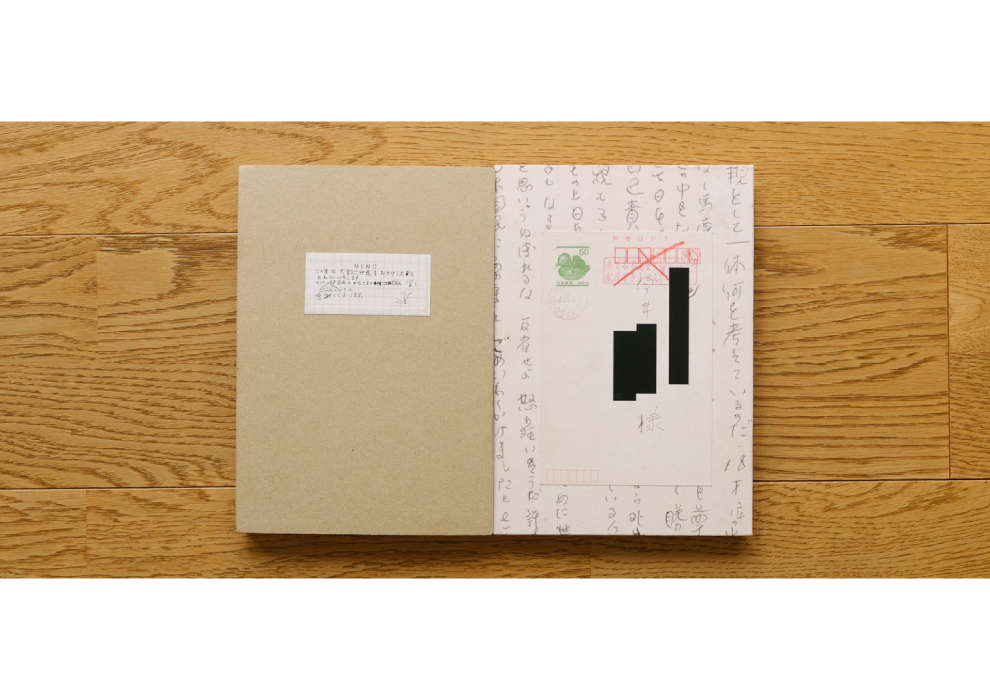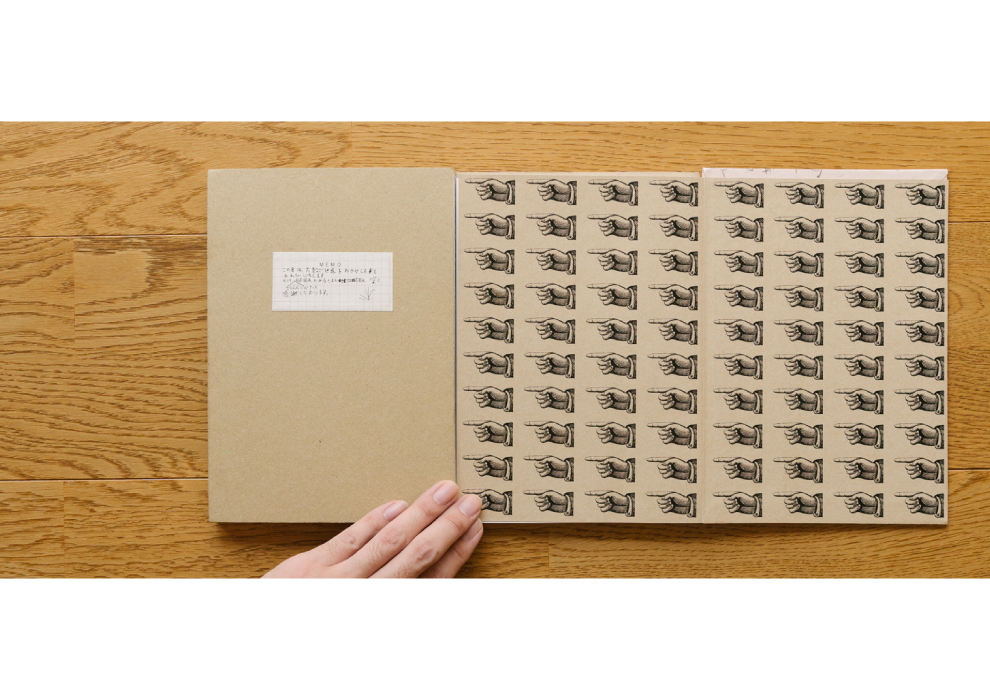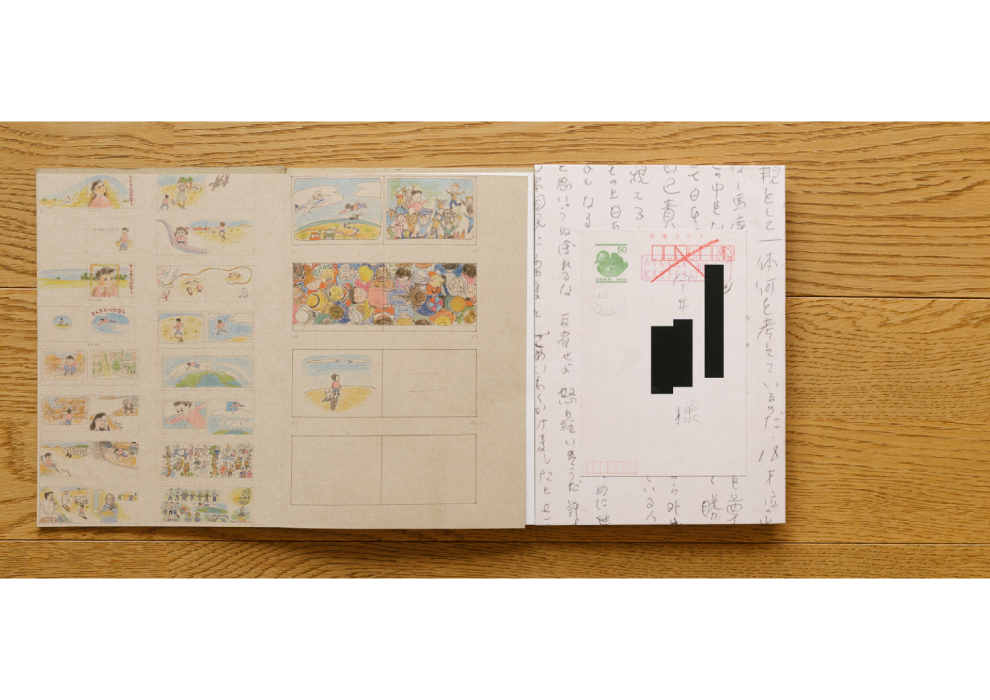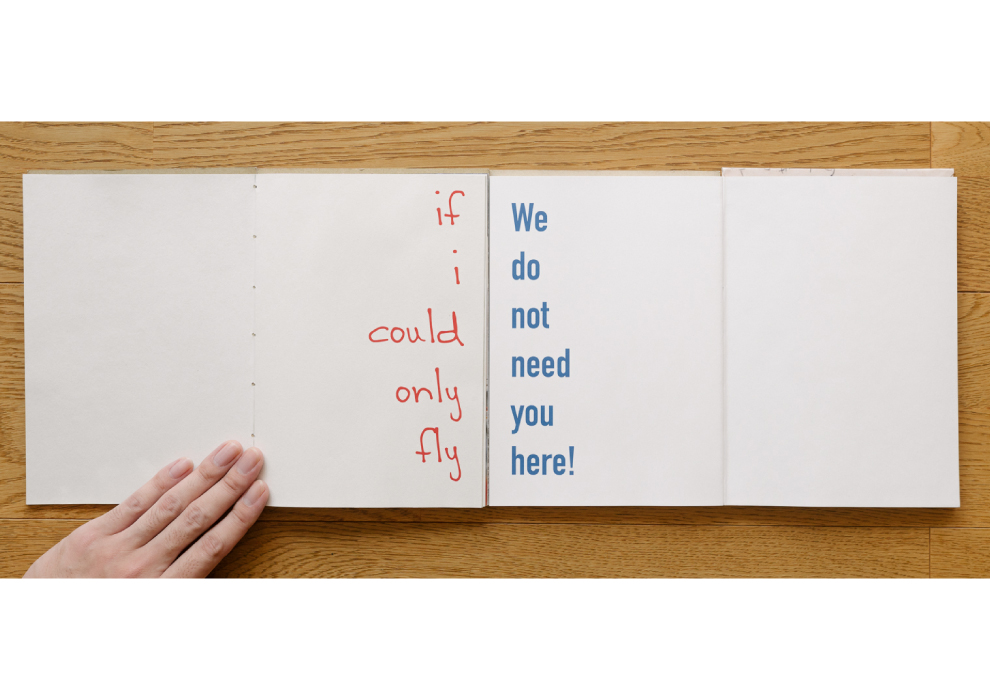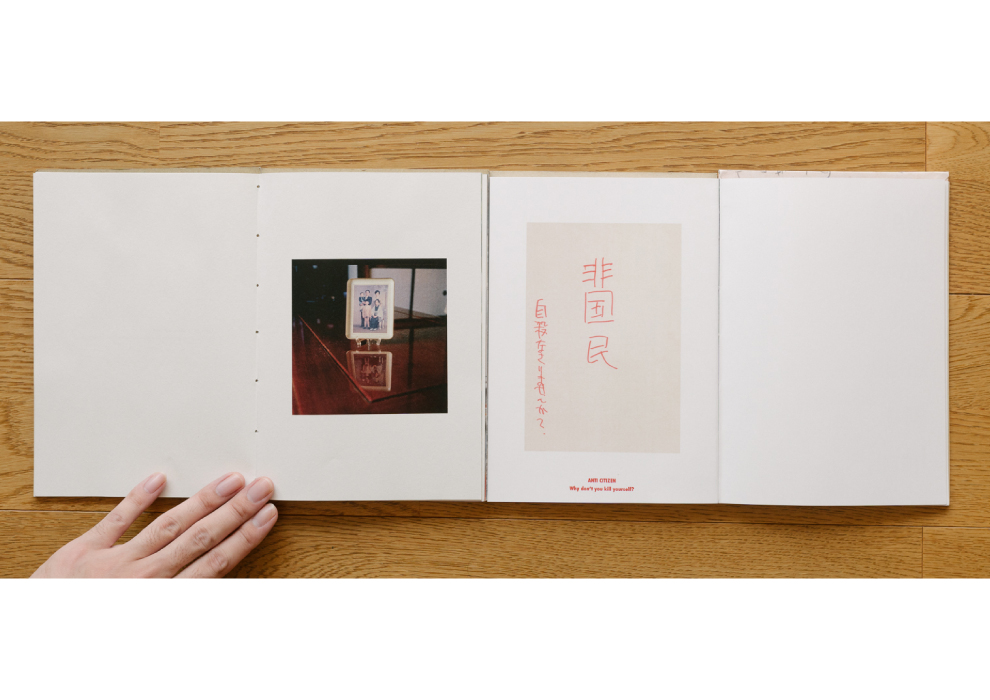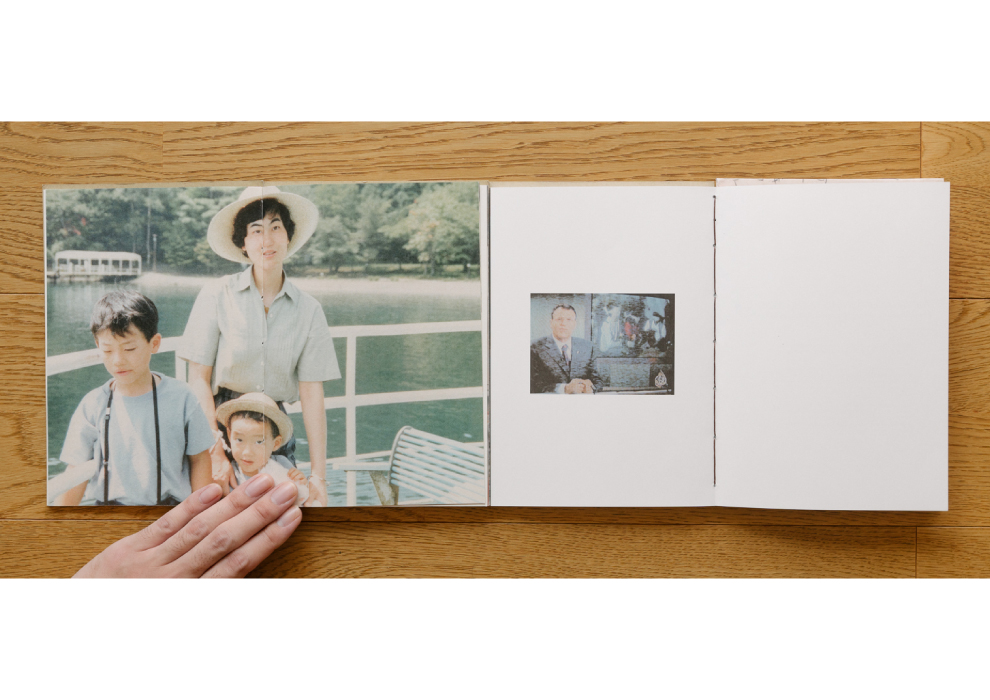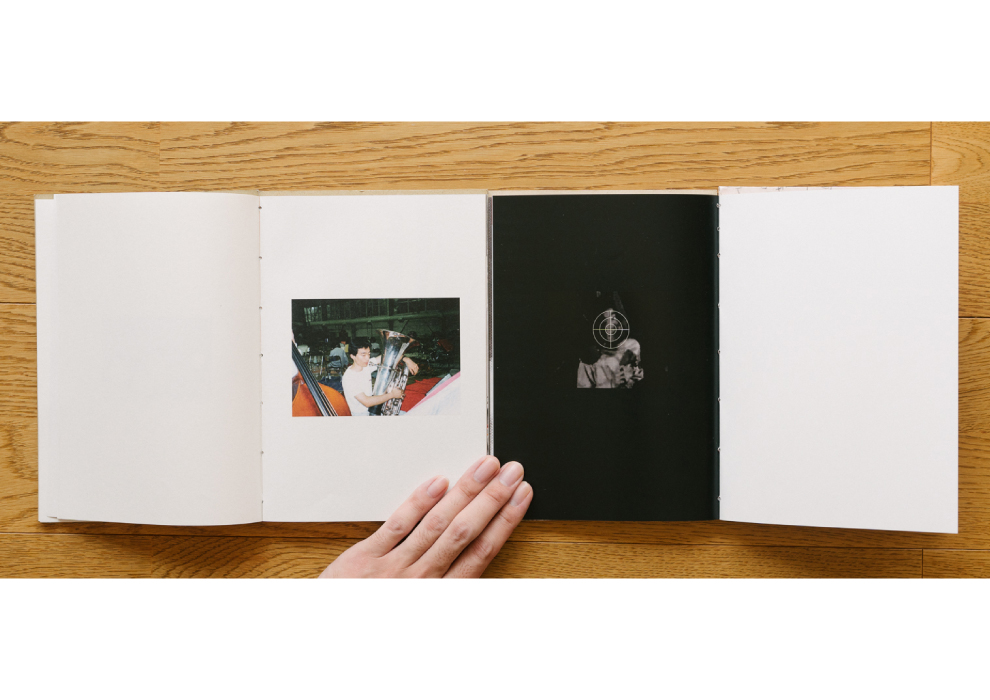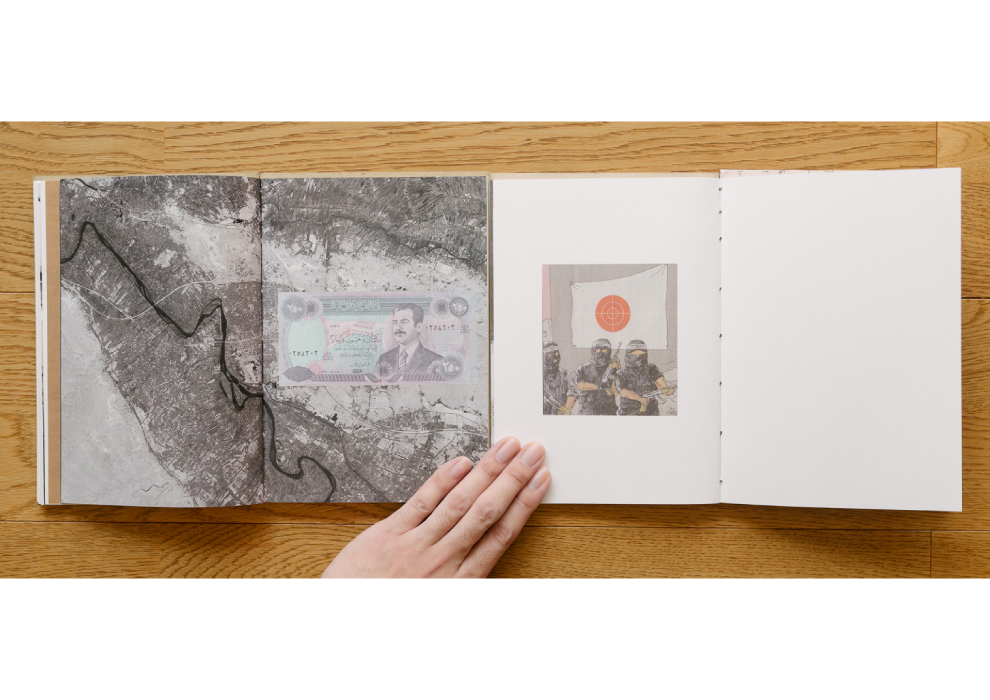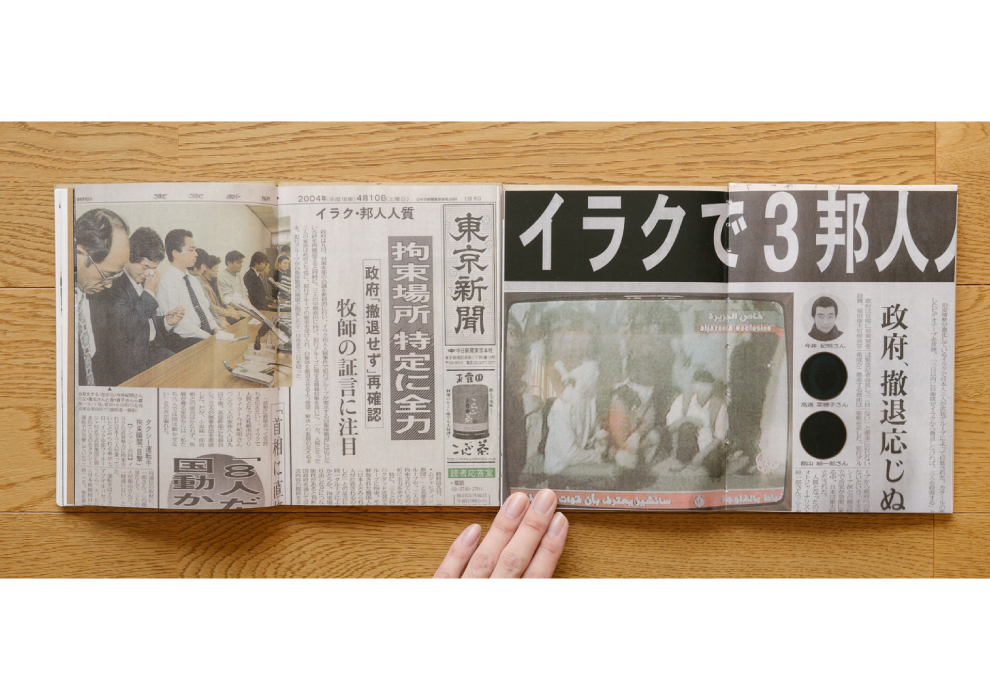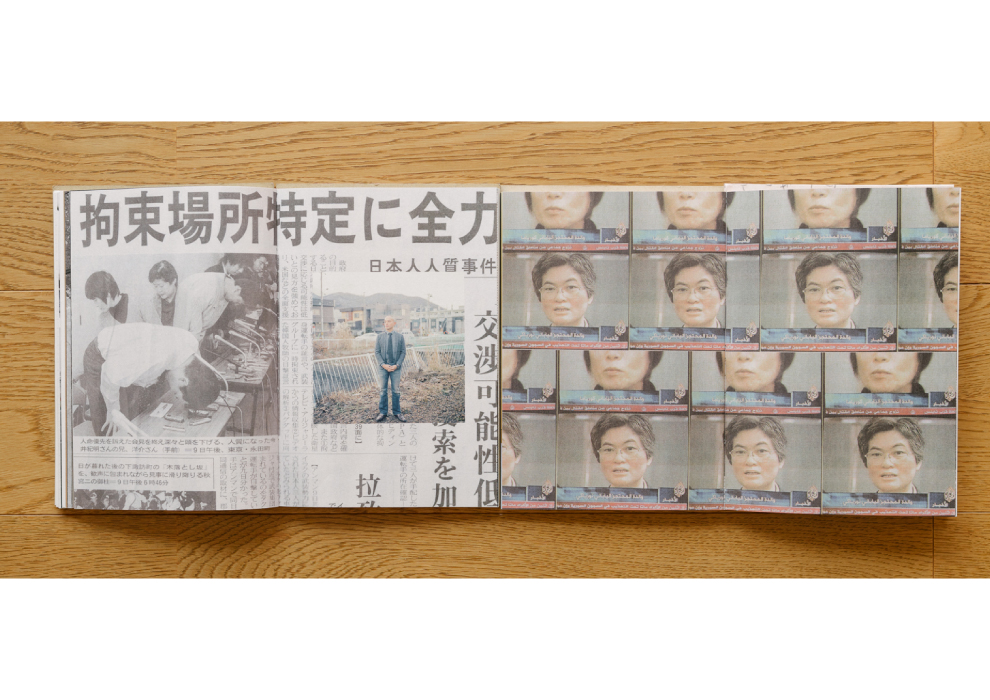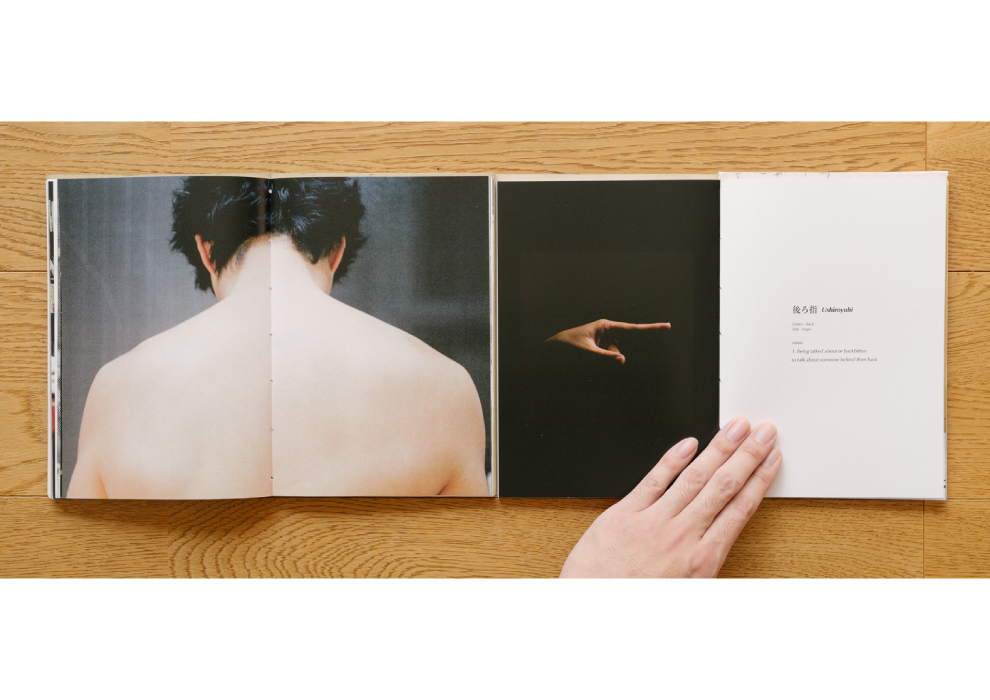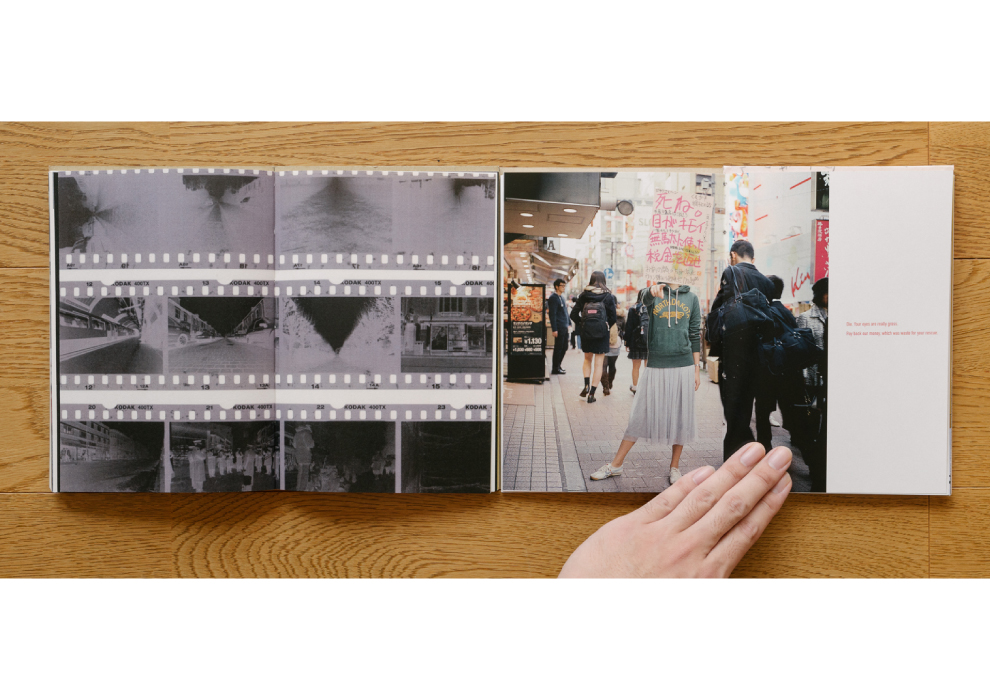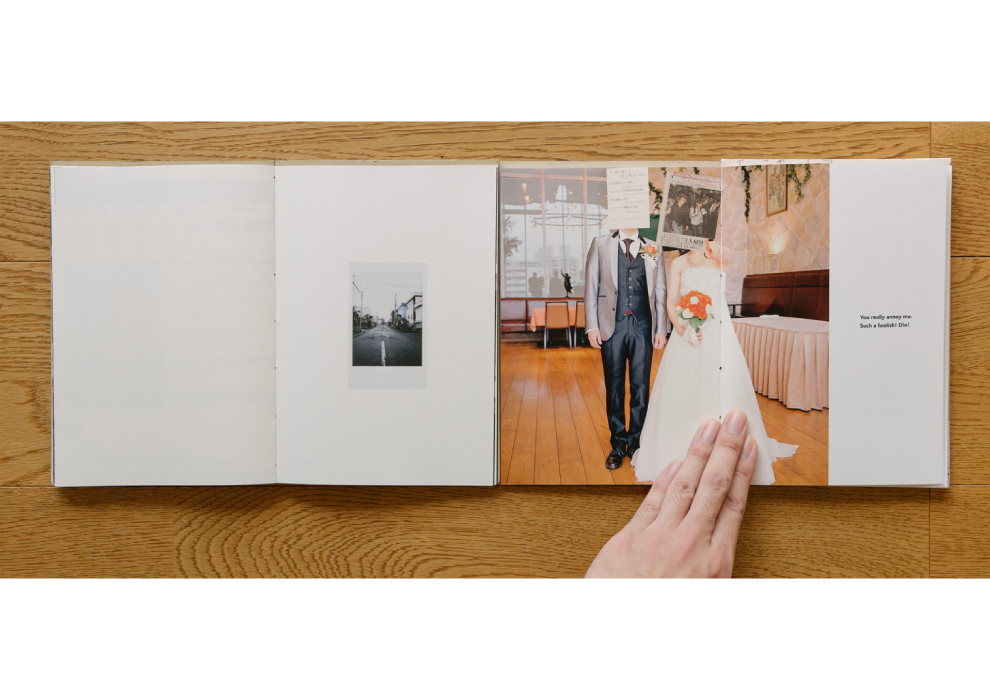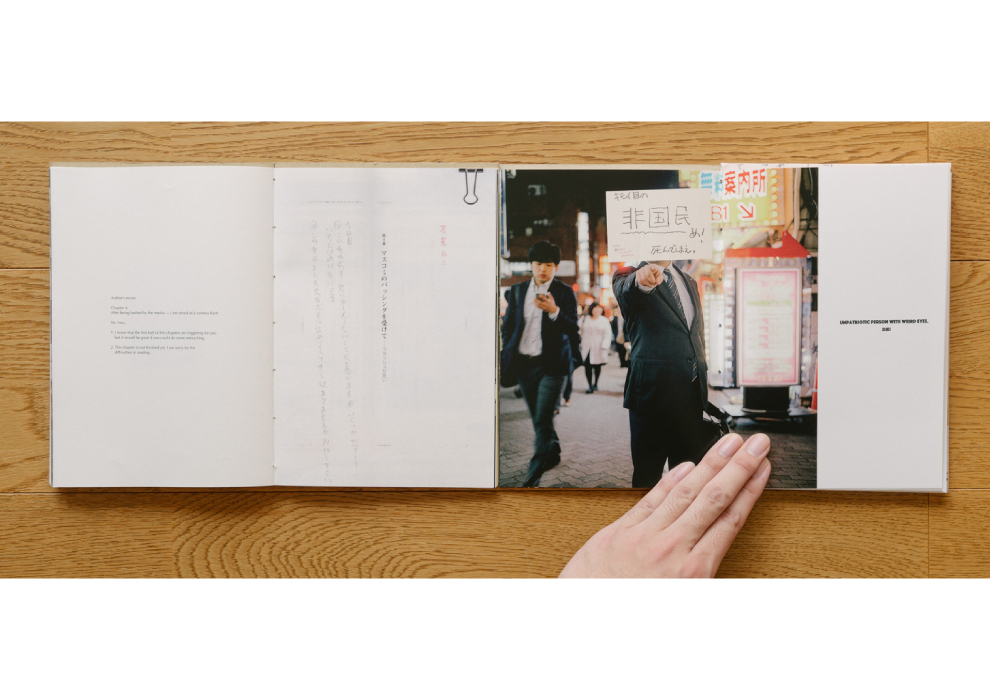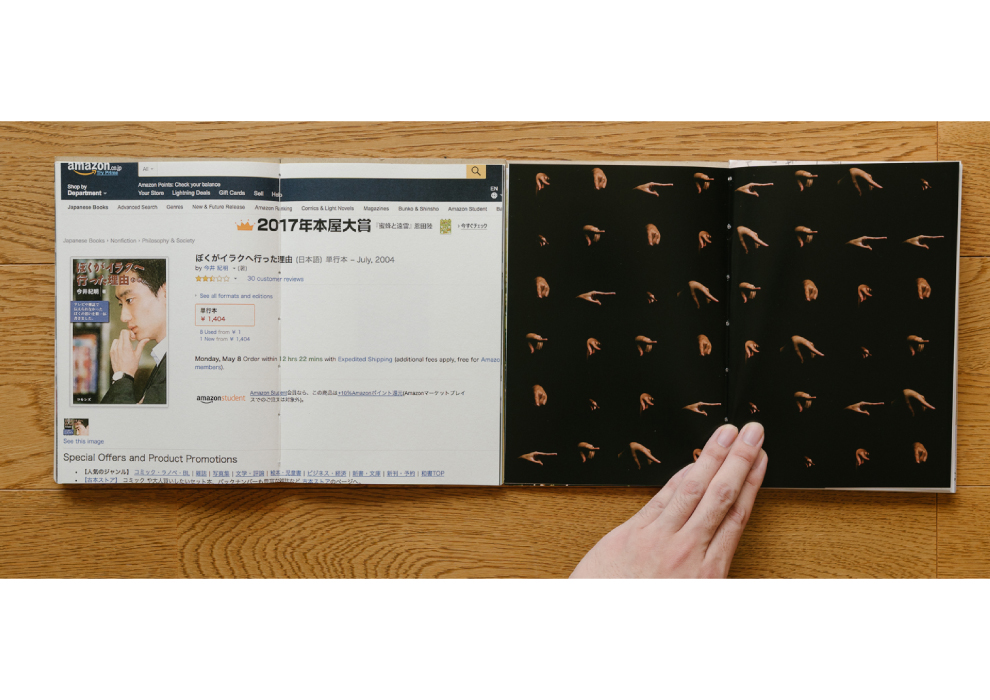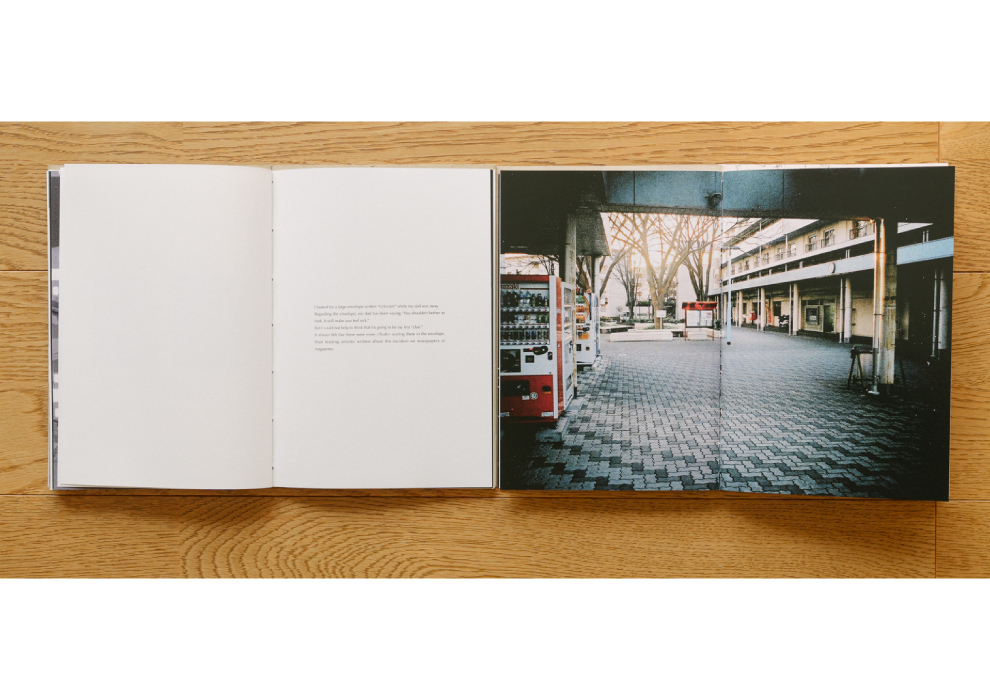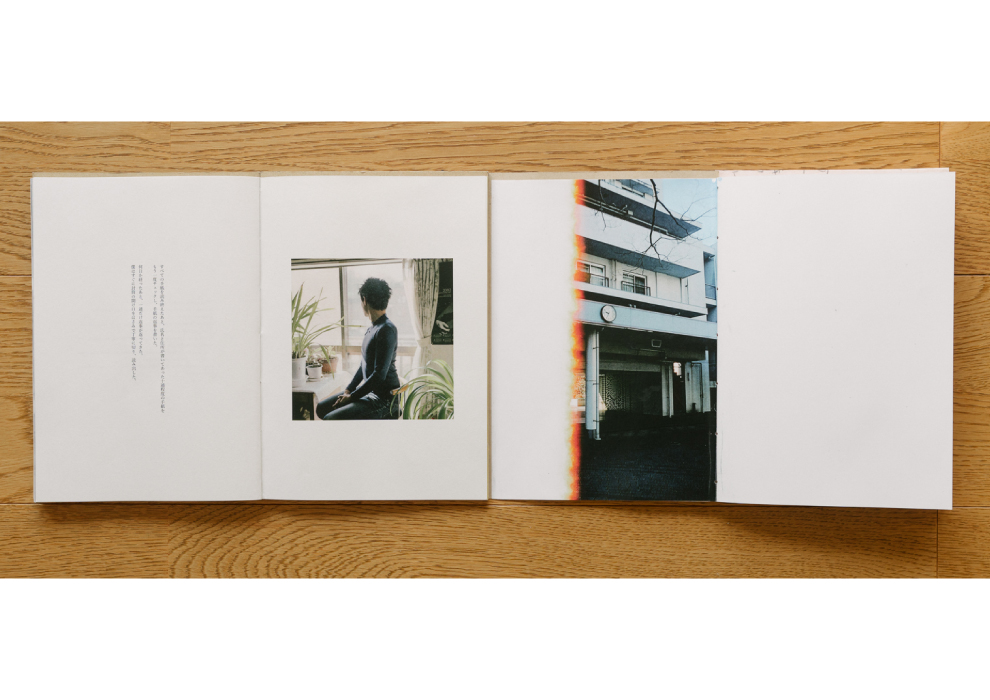We do not need you, here. / If I could only fly.
*108 pages (Right Side) + 120 pages (Left side)
*48 original images, 104 archival materials
*English and Japanese edition
*215mm x 150mm x 35mm, 835g
*104 editions only, all signed and given the edition number by the artist
*Price: 15,000 JPY (Plus shipping fee)
Concept / Design /Image / Edit / Print / Binding : Hiroshi Okamoto
Translation : Shin Ernest Suenaga
Special Thanks : Noriaki Imai
Concept, Edit and Art-direction: Developed in the 2016 photo book making masterclass by Yumi Goto, Sandra van der Doelen and Teun van der Heijden
in collaboration with Reminders Photography Stronghold.
*104部限定(署名、エディション入り)
*108 ページ(右側) + 120ページ(左側)
*イメージ48点 + 各種アーカイブイメージ104点
*英日版
*高さ215mm x 横幅150mm x 厚み35mm 835g
*価格:15,000円 (+送料)
写真・イメージ・デザイン・編集・印刷・製本:岡本裕志
翻訳:末永 シン
特別協力:今井紀明
本書はリマインダーズ・フォトグラフィー・ストロングホールドにて2016年に開催されたトゥーン・ファン・デル・ハイデン、サンドラ・ファン・デル・ドゥーレンと後藤由美によるワークショップ「フォトブック・マスタークラス」において、コンセプト、編集、アートディレクションを発展させて制作されました
This project is the story about intolerance towards others in contemporary Japanese society based on my friend’s personal experience.
On April 2004, three Japanese citizens were kidnapped by terrorists at Fallujah in Iraq during Iraq war. One was a photojournalist and one was a NGO worker, another was an eighteen years old teenager volunteer. The eighteen years old boy, Noriaki Imai’s life and my life unexpectedly crossed when we attended same university in Japan in 2009, where we became friends. This is his story.
The terrorists demanded Japanese government to withdraw Japanese self-defense forces from Iraq. The prime minister strongly rejected this demand but somehow, those kidnapped people were peacefully released after eight days. As a result, the three citizens could come back to Japan safely.
However, when those three people returned to Japan, Japanese society completely criticized and harassed them. Mass of people loudly spoke against the kidnapped people and their family. The society claimed that they haven’t taken responsibility for their actions at all, and that they need to apologize to the Japanese government and people in Japan immediately for causing such enormous trouble to a country. Furthermore, people often shouted “Why did our tax money had to be spent on their rescue, when this kidnapping happened because of those foolish three people’s lack of self-responsibility!”
More than one hundred abusive letters were sent to my friend, Noriaki, after his return. However more than 95% of the letters were anonymous. Most of TV shows and newspapers were often furiously reporting about his personal life and his family. In addition, his private information was exposed to the public by mass medias and anonymous online critics. When he was walking in the city, everyone noticed his face and they would literally point fingers at him as “That’s that stupid, unpatriotic kid!” He even got beaten up by a stranger on the street.
Pointing a finger at someone’s back means “backbiting” in Japan. This behavior is deeply rooted into traditional Japanese society and it is one of the iconic mind sets Japanese people have.
Traditionally, Japanese society has been based on various local communities for a long time. And people have lived in their own community side by side helping each other. On the other hand, once a member from the community makes mistakes or causes troubles, immediately, other members will eliminate the person from their community.
When we see a heretic individual, who disturbs the harmony of community, we point at their back.
Sometimes, it is for social justice.
Sometimes, it is for gassing out unfounded hatreds.
And sometimes, it is for something to entertain ourselves with in a mundane everyday life.
You could become the person who points at someone or whom to be pointed at, as long as you are a member of our society.
これは、僕の友人の個人的な体験を元にした日本社会における他者への不寛容にまつわる物語である。
2004年4月、フリーフォトジャーナリスト男性(当時32歳)、ボランティア活動家女性(当時34歳)、未成年の少年(当時18歳)の邦人3名がイラク戦争中のイラク国内にて武装勢力によって拉致される。武装勢力は3人の人質の命と引き換えに、当時人道復興支援活動のためイラクへ駐留していた自衛隊の撤退を日本政府へ要求。日本政府は武装勢力の要求を拒否。事件発生から8日目に、3名は無事に解放され、現地日本大使館に保護される。
3名の帰国後、マスメディアや世論は3名および、その家族に対して「自己責任」という言葉とともに強く彼らの事件に対する責任を追及、批判した。
3名のうちの1人であり、当時18歳の少年であった今井紀明は、後に僕の大学の先輩に、そして友人になる人でもあった。
古くから日本社会は無数の地域コミュニテイで構成され 人々はそれぞれ己の属するコミュニテイの中で、助け合いながら生活を営んできた。
その一方で一度、共同体の秩序を乱す者は、完膚なきまでにその社会から 排除されるのが常である。
集団の和を乱す異端の存在に対して、我々は後ろ指を指すのである。
それはときに社会の正義のために。
ときに理由のない憎悪のはけ口として。
ときにくだらない日常を満たすささやかな楽しみとして。
誰もが誰かに後ろ指を指し、誰かに後ろ指を指される存在であり続ける。
あなたが、我々の社会の一員である限り。
©HIROSHI OKAMOTO 2026
©HIROSHI OKAMOTO 2026
